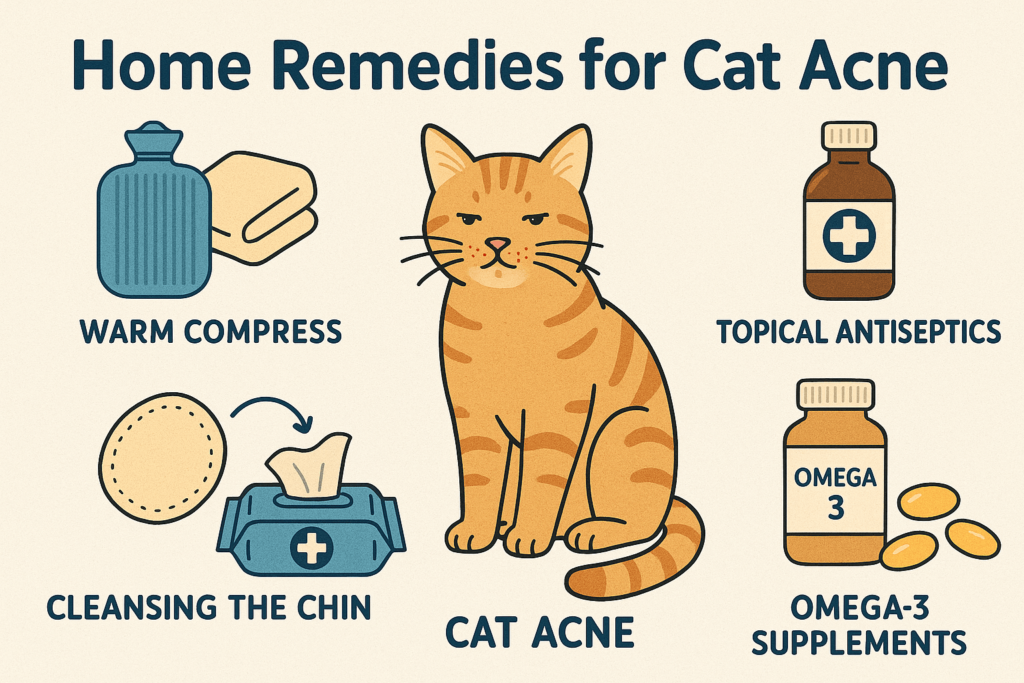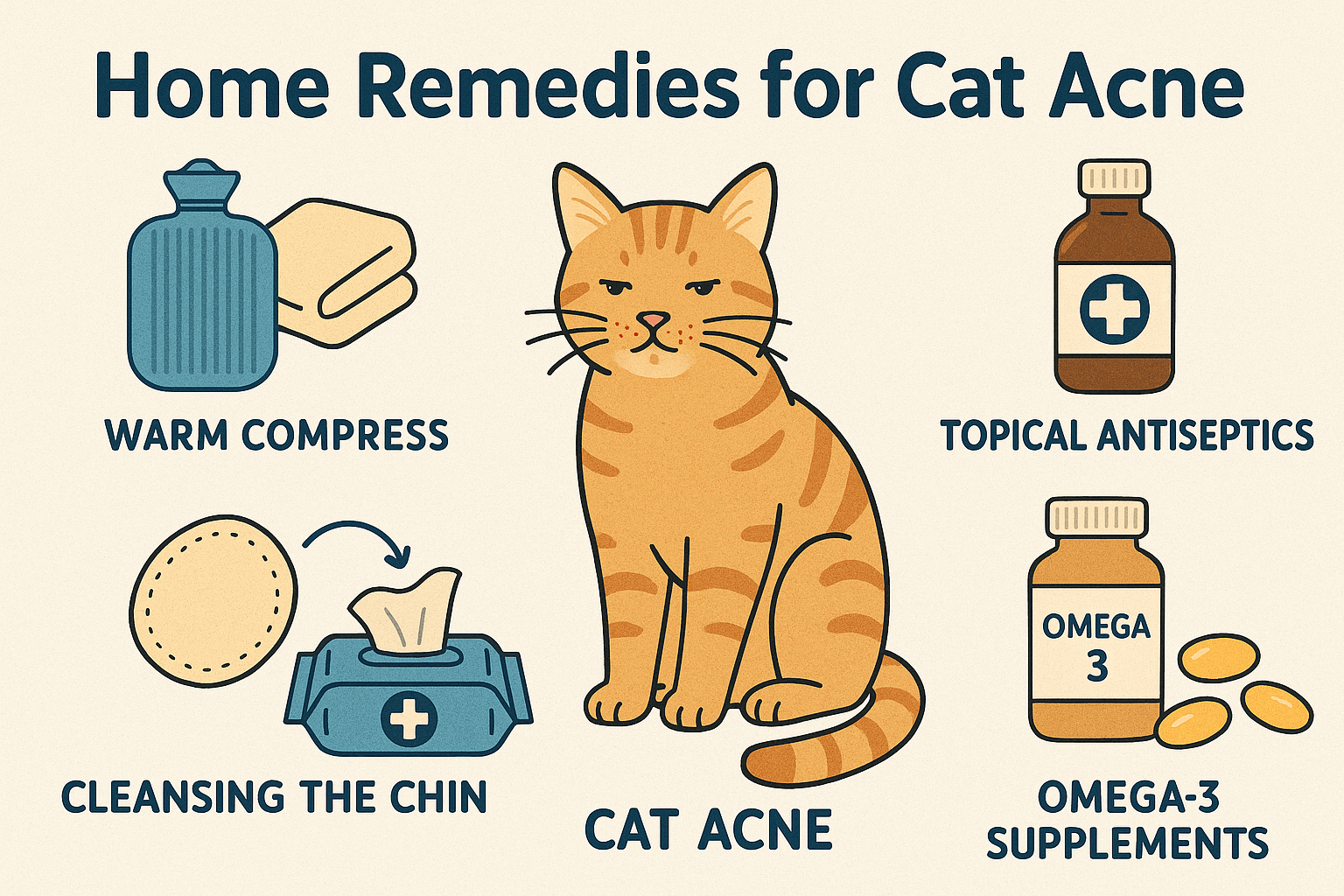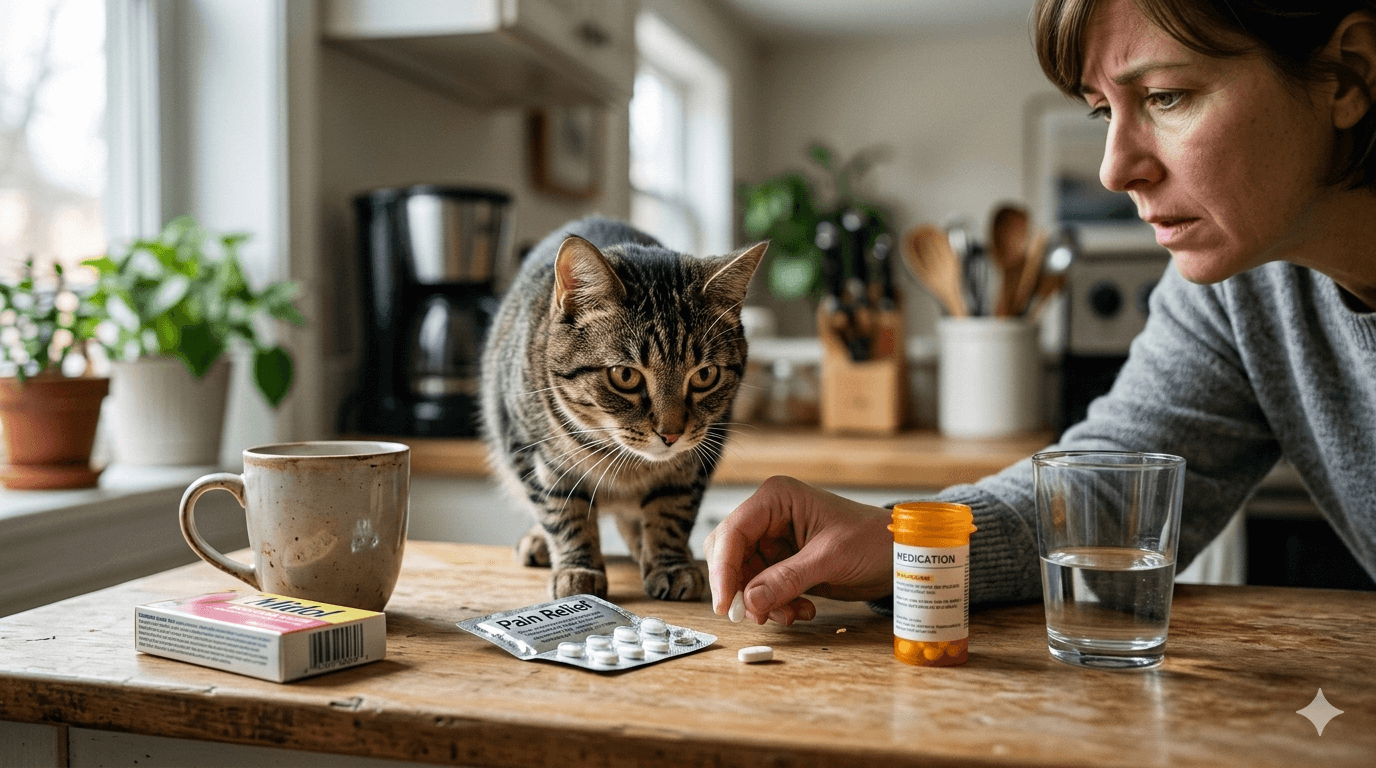Home Remedies for Cat Acne: A Gentle Approach to Feline Skin Care
Cat acne might sound unusual, but it’s a common condition that affects many felines. Just like humans, cats can develop acne, typically around their chin and mouth area. This condition often manifests as blackheads, red bumps, or crusty patches, and while it’s not life-threatening, it can cause discomfort and irritation for your furry friend. Fortunately, there are several home remedies and gentle treatments you can try to alleviate the symptoms and promote healing. In this blog post, we’ll explore effective solutions, preventive measures, and tips to ensure your cat stays happy and healthy while managing this pesky issue.
Expert Insight: Understanding Cat Acne
The scientific name for cat acne is follicular keratinization, which hints at what this disorder is about. It is sometimes called feline acne or chin acne but refers to the same thing. Cats generally develop acne when their hair follicles become blocked by an overproduction of keratin.
Understanding Cat Acne: Causes and Symptoms
Before diving into remedies, it’s important to understand what causes cat acne and how to identify it. Recognizing the signs early can help you address the problem promptly and prevent it from worsening.
Poor Grooming Habits:
Cats that don’t groom themselves properly may develop clogged pores, leading to acne. Overweight cats or those with mobility issues are more prone to this.Plastic Food Bowls:
Plastic bowls can harbor bacteria and irritate your cat’s skin, contributing to acne outbreaks. Switching to stainless steel or ceramic bowls is highly recommended.Stress or Hormonal Changes:
Stress or hormonal imbalances can trigger acne in some cats, just as they do in humans.Overactive Sebaceous Glands:
Excessive oil production in the skin can clog pores and lead to acne formation.Secondary Infections:
If left untreated, cat acne can become infected, resulting in swelling, pain, or pus-filled bumps.
Understanding these causes and symptoms will help you take proactive steps to manage and treat your cat’s acne effectively.

Home Remedies for Treating Cat Acne
If your cat is dealing with acne, there are several natural remedies you can try at home to soothe their skin and reduce inflammation. These gentle treatments are safe and easy to implement.
Warm Compresses:
Apply a warm, damp cloth to the affected area for a few minutes to soften the skin and loosen debris. This makes cleaning easier and reduces irritation.Diluted Saline Solution:
Mix a teaspoon of salt with a cup of warm water and use a cotton ball to gently clean the chin. This helps disinfect the area without causing dryness.Apple Cider Vinegar Rinse:
Dilute apple cider vinegar with water (1:1 ratio) and use a cotton pad to wipe the affected area. Its antibacterial properties can help combat acne.Coconut Oil Application:
Dab a small amount of organic coconut oil on the acne spots. It moisturizes the skin and has natural antibacterial benefits.Green Tea Soaks:
Brew a weak green tea solution, let it cool, and use it to cleanse the chin. Green tea has anti-inflammatory properties that can calm irritated skin.
These home remedies provide a safe and effective way to manage mild cases of cat acne, promoting faster healing and comfort for your pet.
Check this guide 👉Cat Acne on Nose: Best 7 Health Tips!
Check this guide 👉Should You Pop Cat Acne? Best 7 Health Tips!
Check this guide 👉Understanding Cat Chin Mites vs Acne: Best 7 Expert Tips!
Preventive Measures for Cat Acne | Signs Your Cat Needs Veterinary Care |
|---|---|
Wash food and water bowls regularly | Persistent swelling or redness |
Use stainless steel or ceramic bowls | Pus-filled bumps or open sores |
Clean your cat’s chin after meals | Excessive scratching or licking |
Provide a balanced diet | Loss of appetite or lethargy |
Avoid harsh chemicals near their face | Unexplained weight loss |
Lifestyle Changes to Prevent Cat Acne
In addition to treating existing acne, making certain lifestyle adjustments can help prevent future outbreaks. These changes focus on improving your cat’s overall hygiene and environment.
Upgrade Feeding Supplies:
Replace plastic bowls with non-porous materials like stainless steel or ceramic to reduce bacterial buildup.Regular Cleaning Routine:
Wipe your cat’s chin with a damp cloth after meals to remove leftover food particles that could clog pores.Monitor Diet Quality:
Ensure your cat’s diet includes essential fatty acids, which support healthy skin and coat. Consult your vet about dietary supplements if needed.Encourage Proper Grooming:
Help overweight or elderly cats groom hard-to-reach areas by brushing them gently and wiping their face with a soft cloth.Reduce Stress Levels:
Minimize stressors in your cat’s environment, such as loud noises or sudden changes, as stress can exacerbate acne.
By incorporating these habits, you can significantly lower the risk of recurring acne and keep your cat’s skin in top condition.
When to Seek Professional Help for Cat Acne
While home remedies work well for mild cases, some situations require professional intervention. Knowing when to consult a veterinarian ensures your cat receives appropriate care.
Severe Inflammation or Pain:
If your cat shows signs of significant discomfort, such as avoiding touch or excessive pawing at their chin, seek veterinary advice.Recurring Outbreaks:
Frequent flare-ups despite consistent care may indicate an underlying health issue that needs diagnosis.Hair Loss Around the Chin:
Bald patches or scabs around the affected area suggest a more serious condition requiring medical attention.Foul Odor or Discharge:
Any unusual smell or discharge from the acne spots could signal infection, necessitating antibiotics.Behavioral Changes:
Sudden changes in eating habits or energy levels may point to complications beyond skin issues.
Prompt veterinary care ensures your cat receives timely treatment and prevents potential complications from worsening.
Common Mistakes to Avoid When Treating Cat Acne
Treating cat acne requires care and precision to avoid worsening the condition. Here are some common mistakes to steer clear of during the process.
Using Harsh Chemicals:
Strong cleaners or alcohol-based products can irritate your cat’s delicate skin and worsen acne.Over-Cleaning the Area:
Excessive scrubbing can strip the skin of natural oils, leading to dryness and further irritation.Ignoring Underlying Health Issues:
Failing to address potential allergies or hormonal imbalances may result in recurring acne.Forcing Treatments on Your Cat:
If your cat resists treatment, forcing them can increase stress and make the situation worse.Skipping Regular Monitoring:
Neglecting to check the affected area regularly can allow infections to develop unnoticed.
Avoiding these mistakes ensures safe and successful treatment for your cat’s acne.
Natural Ingredients to Avoid in DIY Remedies
While natural remedies are generally safe, some ingredients can harm your cat’s sensitive skin. Be cautious when using the following substances.
Tea Tree Oil:
Despite its popularity, tea tree oil is toxic to cats and should never be used.Essential Oils:
Most essential oils are unsafe for cats due to their inability to metabolize certain compounds.Hydrogen Peroxide:
This can irritate your cat’s skin and delay healing rather than aid it.Baking Soda Pastes:
While baking soda is useful for odor control, applying it directly to acne can cause abrasion.Lemon Juice or Citrus Extracts:
These are acidic and can irritate your cat’s skin, worsening inflammation.
Choosing pet-safe ingredients is crucial for ensuring your DIY treatments remain effective and harmless.
Tips for Boosting Your Cat’s Immune System
A strong immune system plays a vital role in preventing and managing cat acne. Here are some ways to support your cat’s overall health and resilience.
Provide High-Quality Nutrition:
Feed your cat a balanced diet rich in vitamins, minerals, and omega-3 fatty acids to promote healthy skin.Ensure Adequate Hydration:
Encourage your cat to drink plenty of water to flush out toxins and maintain optimal skin health.Minimize Environmental Toxins:
Reduce exposure to household chemicals, smoke, and pollutants that can weaken immunity.Offer Mental Stimulation:
Engage your cat with toys and interactive play to reduce stress and boost mental well-being.Schedule Regular Vet Check-Ups:
Routine visits help catch potential health issues early and keep your cat in peak condition.
Supporting your cat’s immune system creates a foundation for long-term health and minimizes the risk of skin problems like acne.
Frequently Asked Questions About Cat Acne
Can cat acne spread to other parts of the body?
Typically, cat acne is localized to the chin and lips. However, poor hygiene or underlying conditions may affect other areas.
Is cat acne contagious to other pets?
No, cat acne is not contagious and cannot be transmitted to other animals or humans.
How often should I clean my cat’s chin?
Daily cleaning after meals is ideal, especially for cats prone to acne.
Can I use human acne products on my cat?
No, human acne treatments contain harsh chemicals that can irritate your cat’s sensitive skin. Stick to pet-safe remedies.
Will my cat’s acne go away on its own?
Mild cases may resolve naturally, but ongoing care is usually needed to prevent recurrence.
Caring for Your Cat’s Skin Health
Cat acne may seem like a minor issue, but addressing it promptly ensures your feline friend remains comfortable and free from discomfort. By combining gentle home remedies, preventive measures, and professional guidance when necessary, you can effectively manage this condition and maintain your cat’s overall well-being. Remember, a little extra care goes a long way in keeping your cat’s skin healthy and their personality purr-fectly content.
Can I Give My Cat Midol? Best 7 Expert Tips! – Learn the risks, symptoms, and safe alternatives to keep your cat healthy and avoid toxic reactions.
Can I Give My Dog Midol? Best 7 Expert Tips! – Discover the risks, safe alternatives, and expert advice to keep your dog safe from accidental poisoning.
Maximum Weight for Cats on Planes: Best 7 Expert Tips! – Learn airline policies, tips to stay compliant, and ensure safe travels for your feline friend.
Max Weight for Dogs on Planes: Best 7 Expert Tips! – Discover airline weight limits, safe travel tips, and solutions for flying with your dog stress-free.





